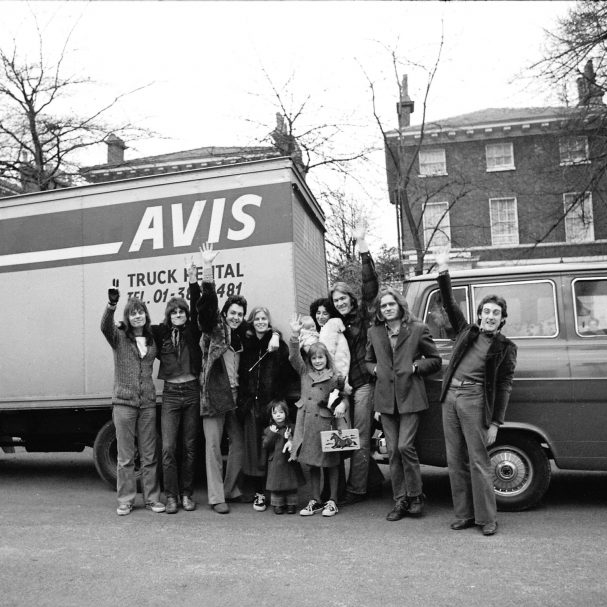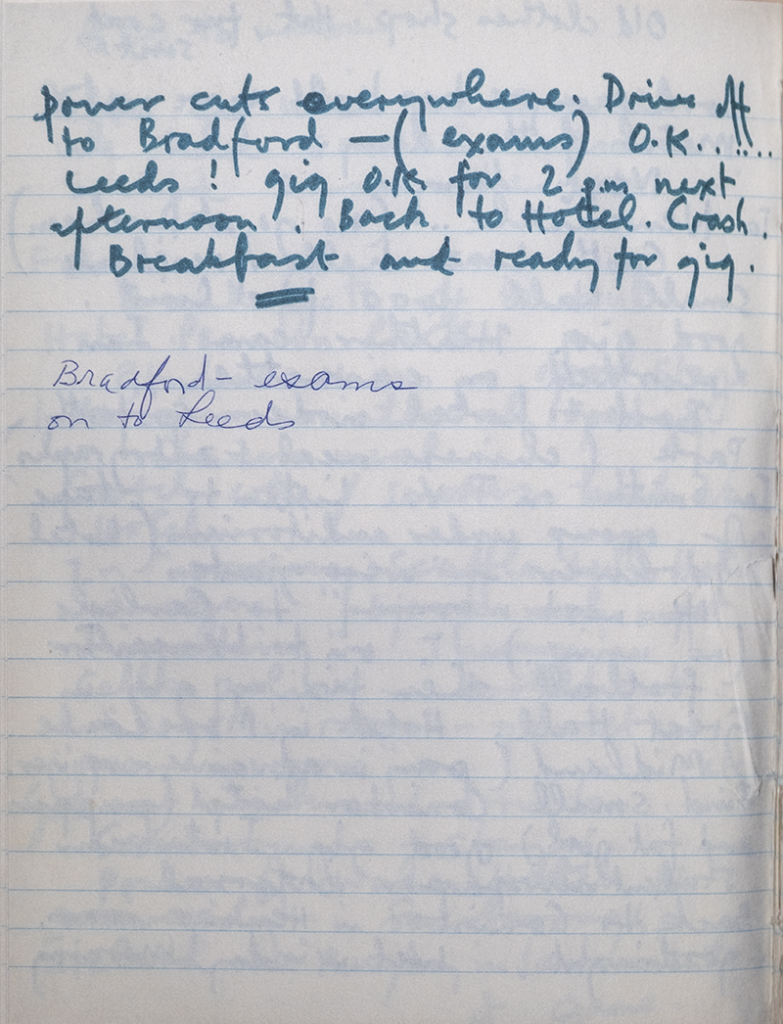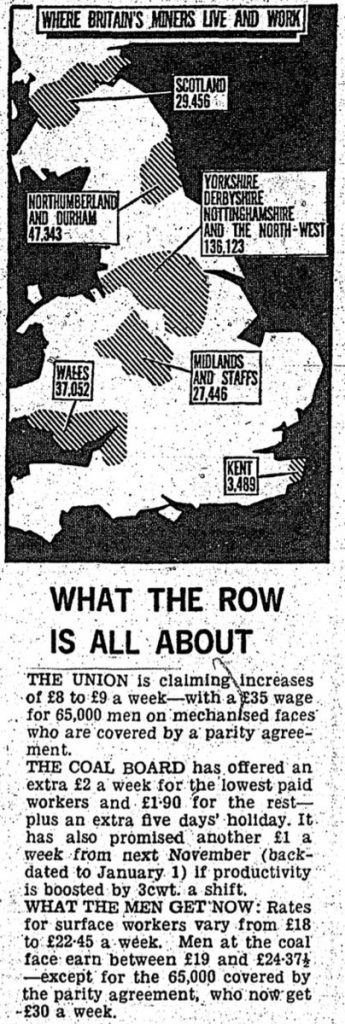
- Timeline More from year 1972
Timeline
More from year 1972
Related people
Spread the love! If you like what you are seeing, share it on social networks and let others know about The Paul McCartney Project.
About
After their gig at Lancaster University on the previous day, Wings had stayed in Lancaster to pass the night. In the morning, they drove to Bradford but it was a day of exams. They decided to go back to Leeds.
They had gone to Leeds on February 10 but decided not to play there, as the press was made aware of their plans and their contact at the university wanted a proper contract and a £250 fee.
On this day, they found an arrangement to play at 2 pm the following day.
We had to pass up Bradford the next day because they were in exams so we went back to Leeds and fixed up a lunchtime gig for the next day. We weren’t all that pleased with it.
Paul McCartney – From the “Wings Over Europe” tour book
Linda McCartney wrote in her diary:
Wet windy morning.
Linda McCartney’s diary – From “Wild Life” deluxe edition book, 2018
Power cuts everywhere. Drive off
to Bradford – (exams) – O.K……
Leeds! Gig O.K. for 2 pm next
afternoon. Back to hotel. Crash.

The power cuts, mentioned by Linda McCartney, are a reference to the crisis faced by the United Kingdom in the early 70s. The economy was then troubled by high rates of inflation. To tackle this, the UK government capped public sector pay rises and publicly promoted a clear capped level to the private sector. This caused unrest amongst trade unions as wages did not keep pace with price increases. At the time, most of the UK’s electricity was produced by coal-burning power stations and the miner’s strikes led to power cuts.
Those events inspired Paul McCartney to write “Power Cut“, released on Wings’ second album, “Red Rose Speedway” in 1973.
From The Guardian, February 16, 1972:
The Central Electricity Generating Board announced last night that disconnections would increase from 10 percent to 15 per cent from this morning. The high risk areas will now spend nine hours without electricity.
The industrial effects of the miners’ stoppage became graver yesterday. As the miners presented their case to the Wilberforce inquiry and the Prime Minister called in both sides of industry for consultations, the number of workers made idle by the power crisis rose by 50 per cent.
The Department of Employment estimated that 1.2 million workers were laid off during the day – half as many again as the day before – and employers were warned by the Generating Board that increases in the working hours on days when power were available could only hasten a total shutdown. Yesterday’s figures mean that in the first two days of the emergency measures, the number of people unemployed in Britain has doubled.
The Midlands was again badly affected by the power cuts and ICI announced that it had given a week’s notice to nearly half its labour force, about 60,000 people on weekly wages. […]
Many other power stations have been forced to cut their output because of the crisis and it is fairly certain that not all of them are coal-fired. At least one other oil station has already been affected.
A Generating Board statement said that 10 power stations were shut down “for the duration” by yesterday, against eight last Friday. […]
From The Guardian, February 16, 1972:
From Dewsbury Reporter, February 16, 2016:
On February 15, 1972, the Central Electricity Generating Board announced that many homes and businesses would be without electricity for up to nine hours a day for the foreseeable future.
The body, which pre-nationalisation was responsible for the UK’s electricity supply, took the steps following electricity shortages caused by the miners’ strike, which was now in its sixth week and saw all 289 pits across England and Wales closed.
The Government had already established a three-day-week, with claims that 1.2 million workers had been laid off. Figures also showed that gas supplies would only last one more week.
A rota was employed for the power cuts, which took place between 7am and midnight. Blackouts could last for up to nine hours at a time, with everything from shopping to homework being done by candlelight.
A deal was eventually reached on February 19 which saw the miners return to work six days later. […]


Last updated on February 15, 2022
Going further
The Beatles Diary Volume 2: After The Break-Up 1970-2001
"An updated edition of the best-seller. The story of what happened to the band members, their families and friends after the 1970 break-up is brought right up to date. A fascinating and meticulous piece of Beatles scholarship."
We owe a lot to Keith Badman for the creation of those pages, but you really have to buy this book to get all the details - a day to day chronology of what happened to the four Beatles after the break-up and how their stories intertwined together!
The Beatles - The Dream is Over: Off The Record 2
This edition of the book compiles more outrageous opinions and unrehearsed interviews from the former Beatles and the people who surrounded them. Keith Badman unearths a treasury of Beatles sound bites and points-of-view, taken from the post break up years. Includes insights from Yoko Ono, Linda McCartney, Barbara Bach and many more.
Maccazine - Volume 47, Issue 1 - The birth of Wings
"Maccazine is a hard copy magazine (a bound paperback) about Paul McCartney. It is published twice a year. Due to the fact that the Internet has taken over the world and the fact that the latest Paul McCartney news is to be found on hundreds of websites, we have decided to focus on creating an informative paper magazine about Paul McCartney."
"In this issue we take you back to the early days of Paul McCartney’s solo career when he decided to form a new group. With Wings he proved there was life after The Beatles. This Maccazine features a detailed timeline of ‘the birth’ of the band with interesting entries including many new facts and unpublished photos. Follow-up timelines will be published in the upcoming years."



Contribute!
Have you spotted an error on the page? Do you want to suggest new content? Or do you simply want to leave a comment ? Please use the form below!